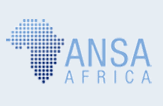|
ANSA-Africa is a network, jointly created by the World Bank and the Human Sciences Research Council (HSRC) in 2007, to be a leading African advocate of citizen involvement in demand-side governance initiatives. ANSA-Africa Secretariat is now hosted by Idasa, based in Pretoria, South Africa.
The objectives of the Network are to:
- Develop cross-country collaboration on social accountability and demand-side governance initiatives;
- Provide technical assistance to different countries so the quality of social accountability initiatives is greatly enhanced; deliver training programs on specific tools and techniques; and
- Share country experiences and lessons from social accountability and demand-side governance initiatives regionally and globally.
ANSA-Africa will link African civil society and community groups across the continent as implementation partners, to support and implement initiatives. Partners in turn will forge their own regional and local associations to implement social accountability initiatives and expand cadres of knowledge.
Through its network, ANSA-Africa will work in three main ways:
- Support social accountability initiatives and programs by providing technical and leveraged financial assistance for the design, implementation and evaluation of quality social accountability initiatives. Through collaboration, the network transmits effective tools and incubates innovative new approaches.
- Promote Capacity development through training and skill building to encourage the use and adaptation of means for citizens to demand accountable governance, delivered through a regional approach to generate the greatest impact. ANSA, through its partners, will design and deliver training programmes across Africa.
- Undertake research and dissemination to apply creativity and rigor to assessing, refining and developing social accountability tools and innovative electronic means to promote wide access to knowledge.
Technical support provided by the network will focus on design and use of social accountability techniques with the greatest potential for improving the efficiency, transparency and quality of public services.
These techniques include:
- Consultative Report Cards, Score Cards, Participatory Budgeting, Participatory Expenditure Tracking, Lateral Budget Tracking, Citizen-Public Sector Communication techniques; Independent Budget Analysis; and Participatory Performance Monitoring, etc.
- The Activities of the network will be generated via both a demand-led and a more pro-active, supply led approach.
- Idasa in its role as the African partner institution will assume management and fiduciary responsibility for the planning, implementation, and monitoring of program activities of the Network, and the external funding mobilised to support program activities.
Broadly Idasa will:
- Oversee the establishment and management of the Network,
- Build on its strong existing network to drive the Network’s core agenda and objectives;
- Provide both demand- and supply driven technical assistance to countries on social accountability initiatives;
- Coordinate and monitor onward grant-making activities,
- Ensure the monitoring and assessment of funded activities; and
- Provide technical training opportunities as needed and facilitate country-to-country learning and technical assistance opportunities
For more about the broader ANSA-Africa process click here.
Strengthening state-civil society engagement in the governance agenda
In October last year, the World Bank Institute, GTZ, and the Affiliated Networks for Social Accountability brought together key proponents of the good governance and transparency agenda at GTZ headquarters to develop a common vision for strengthening state-civil society engagements. The objectives of the event were to: examine the state of play of the good governance agenda, with a particular focus on demand side governance and social accountability, and identify gaps in support that need to be filled; explore substantive partnerships on key thematic areas; and to create greater coordination, networking and knowledge exchange and identify concrete ways to move forward...read more
|

